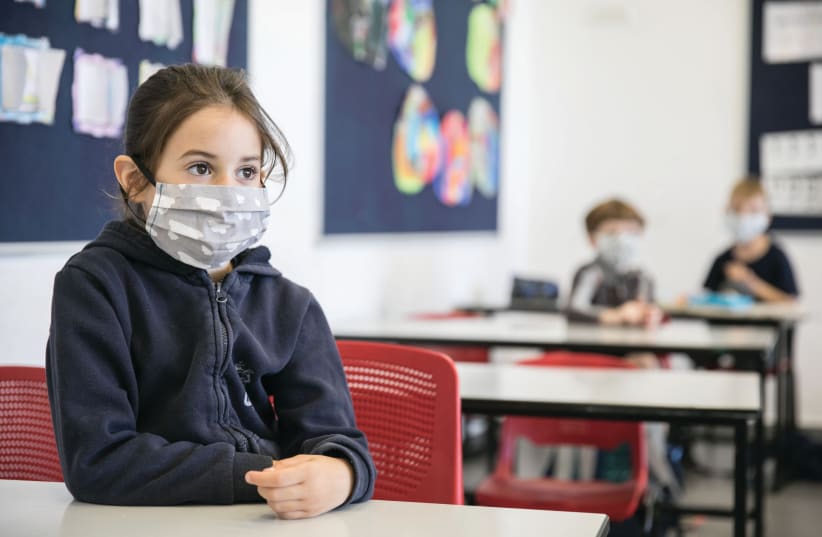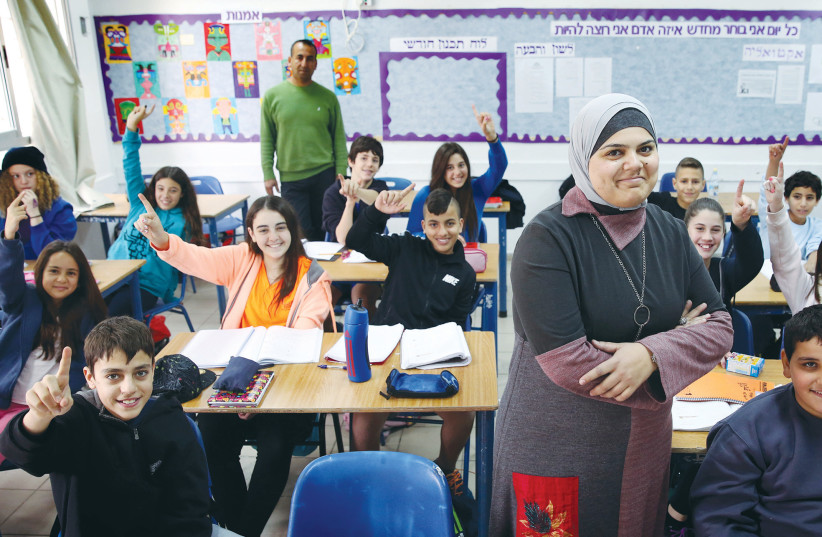The world is a year and a half into the COVID crisis and one fact remains hard to ignore – weak students and weak families have been the hardest hit. The economic, educational and social disarray caused by the pandemic has had the greatest impact on the most disadvantaged part of the population. Two surveys that were recently published in the Israeli press highlight disturbing trends and a lack of policy initiatives to address the needs of Israel’s vulnerable children.
The first, a study undertaken by the Shoresh Institute for Socioeconomic Research, described the poor state of education in Israel compared to other countries in the OECD. Academic performance in basic subjects in the haredi and Arab populations was far below the entire developed world. Poor educational results for students living in the social and economic bottom, the periphery, was also documented. When comparing what students know in reading, science and mathematics and how they can apply it, Israel’s non-religious schools fell below a third of the developed countries in the OECD. The religious schools fell below 80% of those countries even without the inclusion of haredi schools, which don’t participate in standardized tests. One part of the issue appears to lie with the inferior quality of Israel’s teachers. When comparing Israeli teachers to their international counterparts in the OECD assessment of knowledge and skills, Israel’s language arts teachers ranked in the bottom third while math teachers ranked dead last.
The educational picture is complemented by equally grim economic statistics. The Social Policy Institute at Washington University found that 17% of Israeli families with children are unable to afford the amount or type of food they need for normal development. At the height of the COVID crisis, food insecurity impacted a quarter of Israel’s families. The association between food insecurity and risk to childhood physical and mental health and behavioral well-being has been well documented. What is most alarming about the report is how food insecurity has moved from a problem affecting solely the lower socioeconomic segment of the population to one that affects the middle class as well. Israeli food banks and welfare budgets have increased only minimally, forcing Israel’s citizens to rely on relatives and charity for supplemental funding. Despite a promise to increase the government budget for food security from NIS 20 million to NIS 118 million in 2022, the first budget passed with only NIS 23 million in funding.
And so, I keep asking myself, why is this allowed to happen in Israel, Start-Up Nation, the world’s most creative problem solver?
Recently, I had the privilege of participating in Prime Minister Naftali Bennett’s address to North American Jewish leadership. I was struck by his passion for history and how he framed Israel’s current administration within a context of Jewish sovereignty going back to the First and Second Temple periods. I appreciated his description of how coalition partners, who previously demonized one another, are working together to deal with the real issues of governing a modern, complicated state.
But talk is not enough. Israel rightly believes its best natural resource is its brainpower. That means if Israel is to continue to ensure a vibrant, successful future, it must invest smartly and fully in its children. There are several actions to take to make this dream a reality: First, is the identification and implementation in Israel of educational strategies successfully utilized around the world to engage and maximize student potential. Extra tutoring, after-school programming and enrichment can all play a role in exposing students to the world of possibilities and breaking the glass ceiling for disadvantaged children. Second, rigid rules on teacher classifications and classroom requirements and exams need to be replaced with flexible policies and structures devoted to the acquisition of 21st-century skills. And third, there must be institutional fortitude to reallocate governmental budgets to provide families and children with incremental food, housing and welfare costs and support.
If this doesn’t happen, the incremental costs of poor health and low employment will very quickly dwarf any so-called savings from a lack of investment in Israel’s future.
The writer is president of the AMIT educational network.

